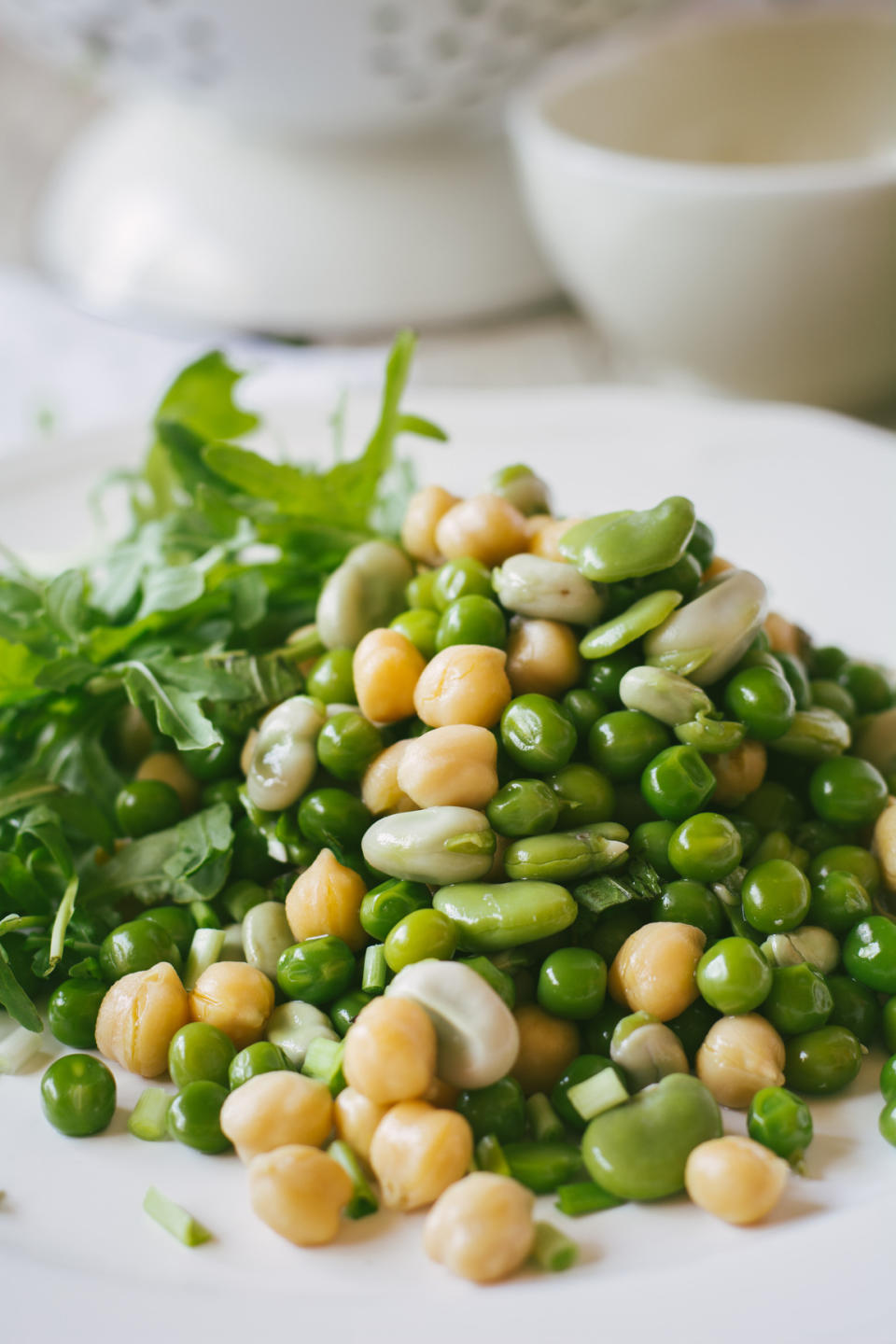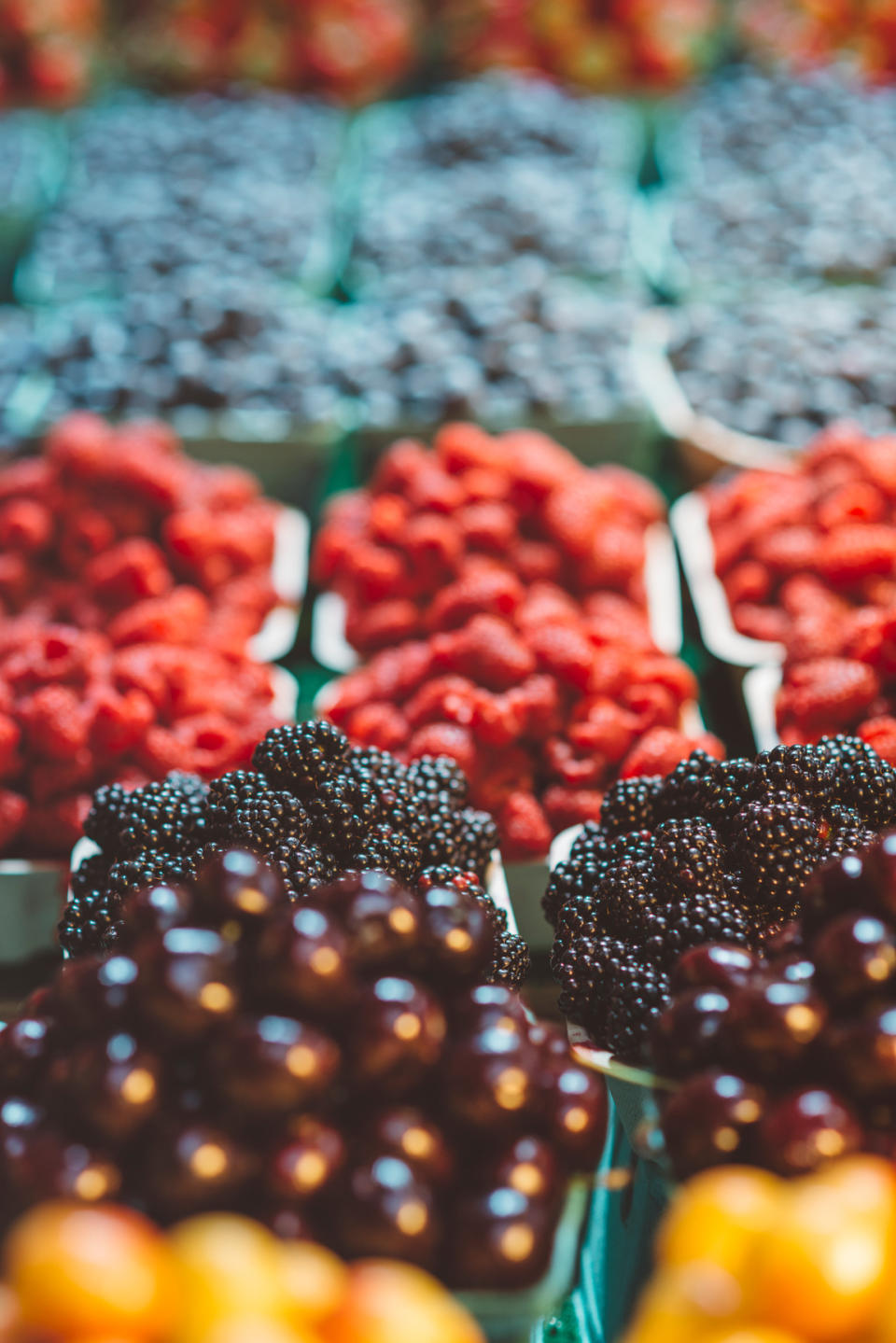What NFL Players Are Eating to Prepare for the Super Bowl
These days, many professional football players consider meal planning a quintessential aspect of their training regimens, and it’s in large part thanks to Dr. Susan Kleiner, a sports nutritionist who headed the NFL’s first full-time nutrition program back in the early 1990s for the Cleveland Browns.
Back then, the biggest challenge was getting athletes to lay off the Big Macs and deep-fried foods, Kleiner told Yahoo Food. But a lot has changed in the intervening two-plus decades.
“Today, we understand the power of sports nutrition,” Kleiner told Yahoo Food. That means eating “a diet rich in plant foods, although at heart it’s an omnivore’s diet.”
So what might players on the Carolina Panthers and Denver Broncos be eating in the run-up to Super Bowl 50? Kleiner gives us her best predictions below.

Photo: Stocksy
Carbs, Carbs, and More Carbs
“They must have carbs stored in their muscles around [the time of] their training and games, so they’re fully fueled,” Kleiner said, adding that knowing they’re fueled is just as important to an athlete’s confidence. “If they are under-fueled, just like anyone, they will not perform at peak levels.”
Good carbs to nosh on? Beans, legumes, nutrient-rich grains, and starchy vegetables, Kleiner said.
High-Performance Fats
It’s no secret that football players take a beating on the regular, but the right diet can improve the speed of their bounce-back.
“Muscle soreness from their athletic endeavors — on top of tissue soreness from bruises and other injures — does much better when they have a diet rich in anti-inflammatory foods,” Kleiner said. “Healthy, high-performance fats — olives and extra-virgin olive oil, nuts and seeds, nut butters and seed butters, and avocados — all of these present important foods that we focus on as anti-inflammatory.”
Known as monounsaturated fats, they’re much different from those found in fried, packaged, snack, and fast foods, Kleiner explained. “Those are high in fats that promote inflammation,” she said.

Photo: Stocksy
Deeply Colored Vegetables
Carotenoids, the compounds responsible for the deep shades of red, yellow, orange, and green in certain fruits and vegetables, are well-known antioxidants, which may help reduce inflammation. Naturally, Kleiner is a fan.
“Cherries, berries, citrus fruits, tropical fruits — all of them play an important role in a football player’s diet,” she said, as do vegetables like kale, spinach, collard greens, chard, and carrots.
Best of luck to the players headed to Super Bowl 50. Remember to eat up, and eat wise!
Still planning your Super Bowl party menu? Consider these dishes:
White Bean and Roasted Garlic Dip with Rosemary from ‘Dips & Spreads
Stromboli with Sopressata, Rapini, and Provolone from ‘Beer Bites’
Make These Insane 6-Foot Nachos for Your Super Bowl Party

